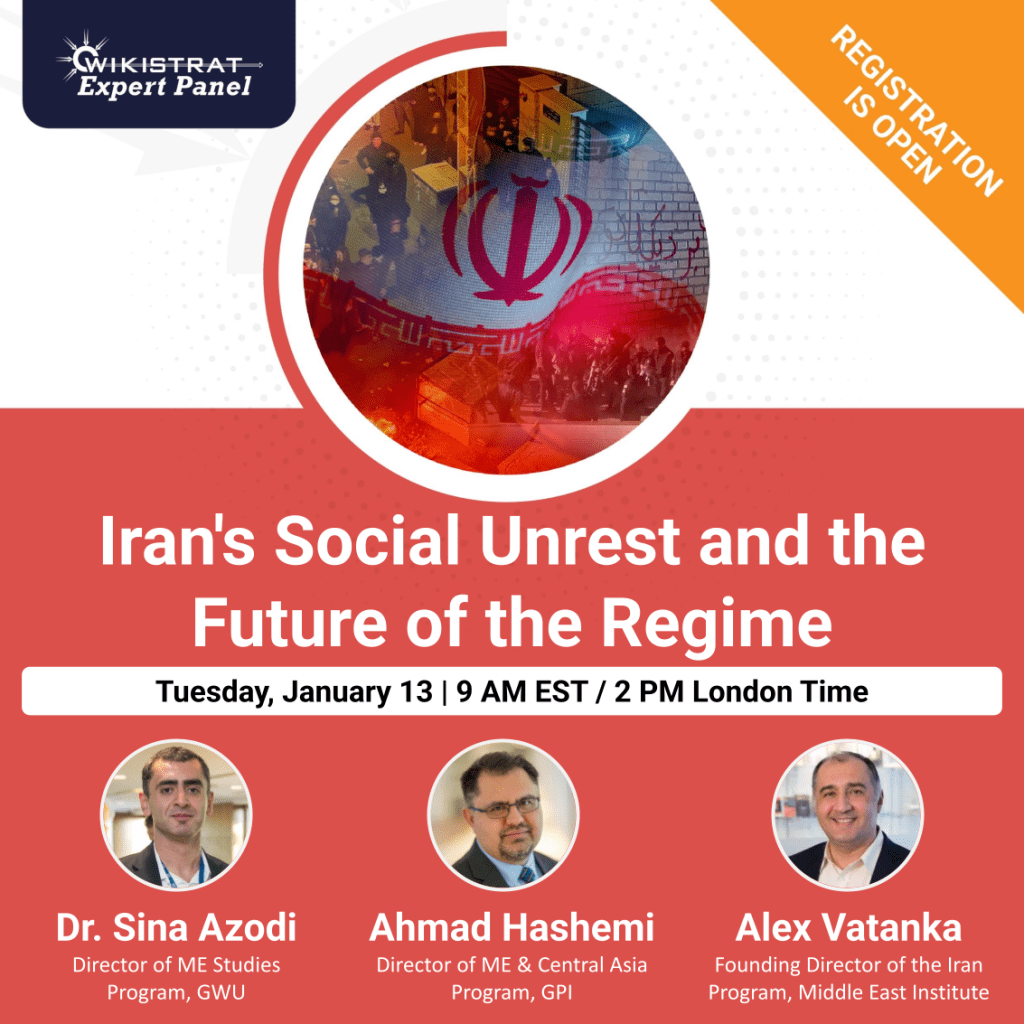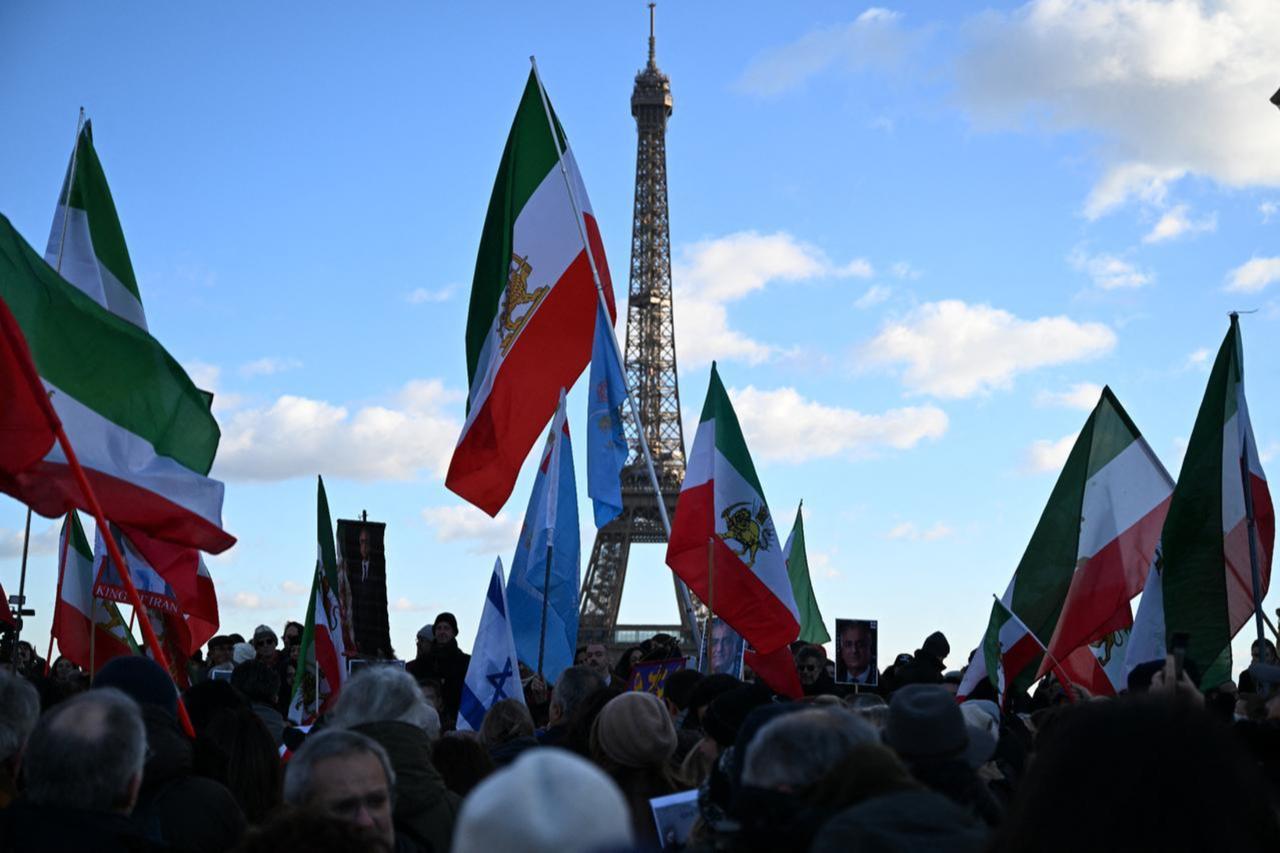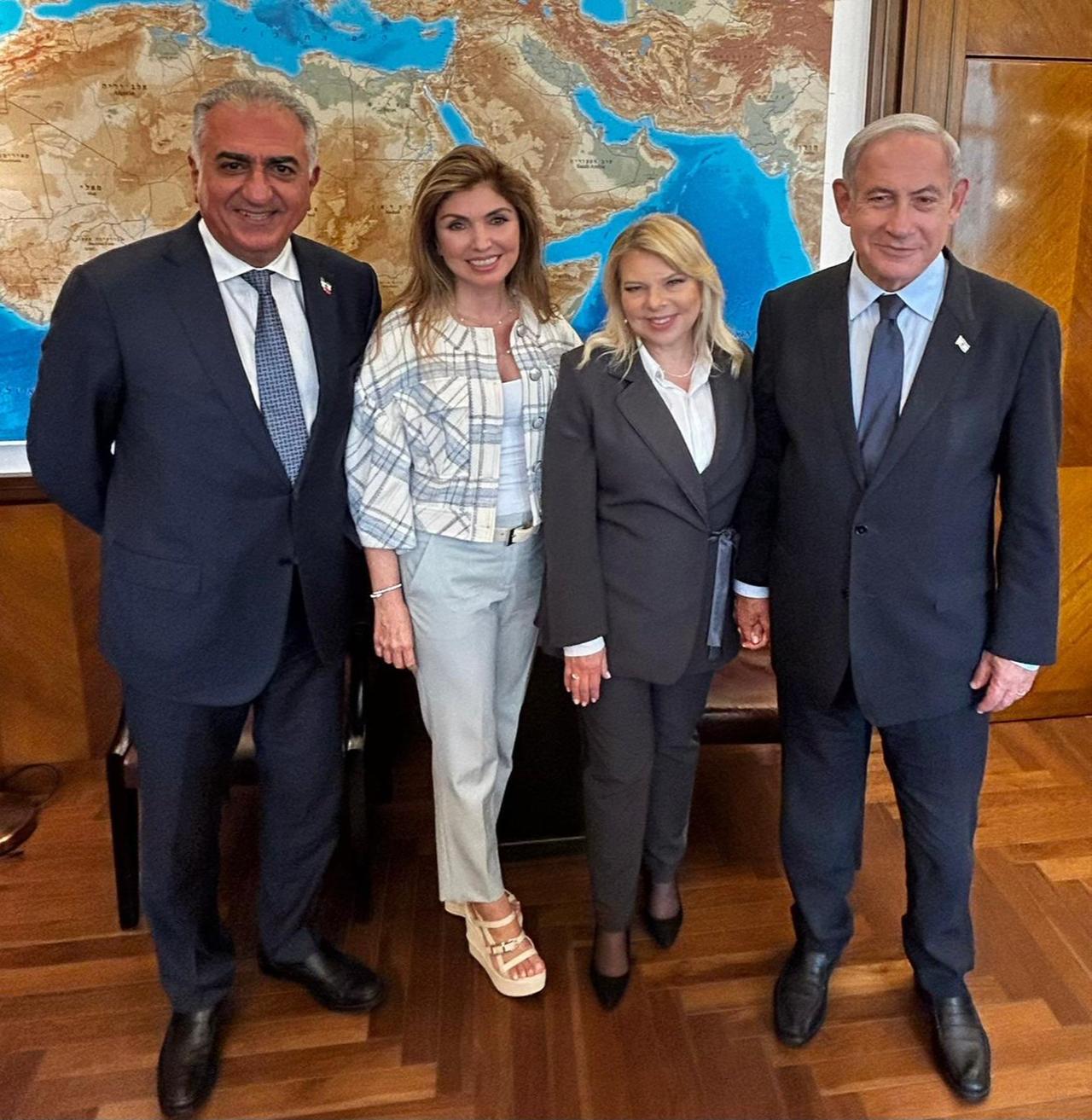Iran Protests: When the Bazaar Turns Against the State
Ahmad Hashemi, Former Iranian Foreign Ministry Interpreter Freelance Journalist
وبلاگ رسمی احمد هاشمی روزنامه نگار مترجم و کارمند اخراجی وزارت امور خارجه
19 January, 2026
Iran Protests: When the Bazaar Turns Against the State
18 January, 2026
Iran's Social Unrest and the Future of the Regime
Iran’s Social Unrest and the Future of the Regime

Iran’s Social Unrest and the Future of the Regime
By Wikistrat
Thousands dead, internet blackouts, and a currency in freefall. When merchants in Tehran’s upscale Monet Street shopping center closed their stores on December 28, 2025, they triggered something the Islamic Republic hadn’t faced in its 46-year history: sustained, nationwide protests met with unprecedented brutality. With over 2,000 casualties, a collapsing economy, and an 86-year-old Supreme Leader whose refusal to compromise has left the regime with no exit strategy, Iran finds itself at a crossroads. On January 13, Wikistrat convened Iran experts Dr. Sina Azodi, Ahmad Hashemi, and Alex Vatanka to assess whether this time is different and what comes next
Dr. Sina Azodi
Director of the Middle East Studies program at George Washington University. Dr. Azodi specializes in Iranian politics and foreign policy, U.S.-Iran relations, and nuclear nonproliferation. He is the author of the forthcoming book Iran and the Bomb: The United States, Iran and the Nuclear Question (2026).
Ahmad Hashemi
Director of the Middle East and Central Asia Program at the Global Policy Institute (GPI). Former Foreign Ministry linguist, pro-democracy activist and freelance journalist in Iran.
Alex Vatanka
Founding Director of the Iran Program at the Middle East Institute, where he also serves as a Senior Fellow. He specializes in Iranian domestic and foreign affairs, political-military relations, and Iran’s relationships with the U.S., Gulf states, and Israel. He is the author of The Battle of the Ayatollahs in Iran (2021).
Key Insights
1. The regime’s survival instinct remains ruthlessly intact
The leadership faces an existential calculation: stay together or hang separately. Despite the scale of protests and economic collapse, there have been no significant defections from the top ranks of the Islamic Revolutionary Guard Corps or the political elite. The occasional viral video of a corporal pledging allegiance to opposition figures misses the point: “these are not the decision makers. They’re mostly the draftees or perhaps you can see a junior officer,” explained Dr. Azodi.
The top brass views the unrest as a foreign-instigated plot that must be defeated at all costs, which explains why casualty numbers have reached levels extreme even by Islamic Republic standards. As Dr. Azodi noted, “the level of brutality is extremely high, even for the standards of the Islamic Republic.” The regime has opted to kill its way out of this crisis, at least for now.
2. Iran’s institutional depth makes this fundamentally different from the Arab Spring uprisings
Unlike Libya or Syria, Iran is not a colonial construction with artificial borders. As Alex Vatanka emphasized: “This is not some product of Colonial engineering. These borders you see are historical borders of a country that has a civilization going back 5,000 years.” It’s a nation-state with 5,000 years of civilizational continuity, where Azeris, Kurds, Arabs, and Persians have coexisted for centuries. The institutions undergirding Iranian society, from the bazaar merchant class to the clerical establishment to the vast bureaucratic apparatus, run far deeper than those in countries that collapsed during the Arab Spring.
The Islamic Republic has spent nearly half a century embedding itself into every aspect of Iranian life. This isn’t a regime that can be toppled with one push; it’s a system that must be dismantled piece by piece, and doing so without triggering civil war or state fragmentation remains the central challenge.
3. The opposition is fragmented, leaderless, and divided along ethnic and ideological lines
There is no unified alternative waiting in the wings. The most visible figure, Crown Prince Reza Pahlavi, carries significant brand recognition among Persian Iranians and the diaspora in places like Los Angeles, where “he’s 90%, he will get the votes,” according to Ahmad Hashemi. But as Hashemi explained: “If we drive 200 miles away from Tehran, go to the ethnic heartland – no. I don’t want to say zero popularity, but almost no, he’s a despised person.” For many non-Persians, the choice between the Islamic Republic and a Pahlavi restoration feels like choosing between two forms of dictatorship.
Meanwhile, the People’s Mojahedin Organization of Iran, or MEK, an Iranian leftist dissident organization, remains organized but commands only an estimated 1-2% of support inside Iran, as Vatanka noted. Secular republicans, reformists who still believe the system can be fixed, and ethnic movements each pull in different directions. Without a transitional framework that can accommodate this diversity, the opposition risks replicating the regime’s own failures.
4. This may not be the end, but it’s likely the beginning of the end
All three experts converged on a sobering consensus: the Islamic Republic is not collapsing imminently, but its structural decay is irreversible. As Vatanka put it: “Everyone knows the system is rotten. Even people presumably in Khamenei’s inner circle, they recognize the system is rotten.”
The question is no longer whether change will come, but when and how. Supreme Leader Ali Khamenei, at 86, shows no interest in reform: “He thinks God is on his side,” observed Vatanka. But his inevitable death will remove the one figure holding competing factions together. The next round of protests is already baked in, driven by the same economic failures, energy crises, and legitimacy deficit that sparked this one. As Hashemi concluded: “I don’t think the regime collapse is imminent… but I should say that this may not be the end of the regime, but it is the beginning of the end of the regime. No doubt about that.”
5. Four scenarios define the range of possible futures
Continued repression with gradual weakening (High probability): The regime crushes protests but grows weaker, potentially reaching a limited deal with Trump to buy time. This means a paralyzed political structure and a deepening economic crisis without immediate collapse.
IRGC consolidation (Moderate-to-high probability): A quasi-coup where the Revolutionary Guards formally take control, keeping Khamenei as figurehead or moving beyond him after his death. Hashemi categorized this as “likely,” considering “the harm’s advanced age” and mounting pressure. This resembles Pakistan or Egypt’s military dictatorships, but doesn’t solve the legitimacy crisis.
Regime collapse (Low probability): The least likely near-term scenario. The least likely near-term scenario. No strikes in the oil sector, no transportation shutdowns, no organized coordination. The opposition remains too divided, and the repression machine shows no cracks at the top.
Fragmentation and civil war (Moderate probability): If the center cannot hold and ethnic grievances explode, Iran could descend into a Syria or Libya scenario. Hashemi described this as “not very likely now, but likely in coming months and years,” depending on “how the international community, especially the United States, the Trump administration, with this unpredictability, reacts to this situation.” This is the nightmare the regime uses to justify brutality and the fear that keeps some Iranians from pushing harder for change.
6. The IRGC isn’t staging a coup; it already runs the country
Alex Vatanka frames the issue clearly: “IRGC has been running Iran for some time now. The idea that they take over means nothing. It is basically continuity.” The Revolutionary Guards didn’t wait for a crisis to seize power; they’ve been consolidating control for decades, taking over vast sectors of the economy, managing ballistic missile programs, and serving as the regime’s enforcers both domestically and regionally.
The question isn’t whether they’ll take over, but whether they can reinvent themselves. The IRGC’s legitimacy comes from protecting the 1979 revolution: “The word ‘Iran’ doesn’t even appear in their name,” noted Vatanka. If they pivot to focusing on Iranian national interests rather than exporting Islamist ideology, they might survive a post-Khamenei transition. But that would require a fundamental transformation of an institution whose identity is tied to the very system protestors are trying to dismantle.
7. Khamenei will never accept zero enrichment, but a temporary suspension is possible
When asked if Iran might capitulate on its nuclear program to survive, Dr. Sina Azodi was unequivocal: “Not as long as Khamenei is alive. He once told an Iranian ambassador you can stop enrichment under two conditions: when I die or if I resign.” Those conditions won’t be met voluntarily. However, Iran might agree to suspend enrichment during Trump’s presidency, allowing both sides to claim victory: Trump gets to say Iran isn’t enriching on his watch, and Tehran preserves what it calls its “right” to enrich. A permanent concession would require the kind of deal Iran couldn’t refuse, similar to when the Shah accepted restrictions in the 1970s in exchange for most-favored-nation status on nuclear technology. But with Khamenei viewing the nuclear program as both a strategic deterrent and a matter of national pride, that deal isn’t on the table.
8. External military intervention would backfire catastrophically
The Trump administration’s “locked and loaded” rhetoric and speculation about Israeli strikes targeting regime leadership raise a dangerous question: would foreign intervention help topple the regime? The consensus among experts is clear: it would not. Hashemi noted that while “symbolically, if let’s say the [Beit-e Rahbari], the Supreme Leader’s Office is being targeted, or anything of that nature, the headquarters of IRGC would be useful,” kinetic intervention would trigger the very “rally around the flag” effect the regime needs to survive.
It would validate the narrative that protests are foreign-orchestrated, alienate nationalist Iranians who oppose the regime but also oppose foreign interference, and risk pushing the country toward fragmentation rather than reform. Moreover, Western backing of specific opposition figures like Reza Pahlavi without broader consultation alienates non-Persian communities and reformists who see this as another form of external manipulation. Intelligence capabilities are better used to facilitate defections and create off-ramps for regime insiders than to launch missiles.
9. The opposition needs regime defectors more than it needs a single savior
The path to transition runs through people still inside the system. As Vatanka emphasized: “Not the top leadership: they have too much blood on their hands. But the bulk of the 170,000-190,000 IRGC members who joined for career opportunities, not ideology.” Many are now wondering whether they want to be wearing that uniform when the ship finally sinks.
The challenge is creating an alternative that doesn’t require them to choose between loyalty to a dying regime and becoming targets in a post-revolutionary purge. This is where figures like imprisoned reformist Mohammad Khatami could play a role: credible insiders who could offer a bridge between the old system and something new. The opposition, whether led by Reza Pahlavi or a coalition, must find ways to give regime members an exit strategy. Otherwise, fear of retribution will keep them fighting to the end, making the collapse more violent and the reconstruction more difficult.
Strategic Takeaways
The Islamic Republic has entered terminal decline but won’t collapse imminently. The regime can kill its way through this crisis but cannot resolve the structural failures guaranteeing future unrest. Khamenei’s succession will be the most dangerous moment in the republic’s history.
Foreign military intervention or overt backing of specific opposition figures would backfire. Iran’s transformation must come from within, navigating ethnic complexity and institutional depth that distinguish it from Arab Spring cases. The goal should be creating off-ramps for regime insiders, not triggering fragmentation.
Opposition fragmentation remains the fatal weakness. No single figure commands cross-ethnic support. As Vatanka noted: “This has come to Iran, and the Iranian people are not going to put up with it.” The question is whether leaders can match the protestors’ courage with strategic wisdom.
What the Next Year Could Look Like
Most Likely: The regime crushes protests through brutality but faces economic paralysis. Khamenei clings to power while the IRGC consolidates behind the scenes. Another wave erupts within 6-12 months.
Best Case Scenario: Mid-level defections accelerate as repression costs mount. Reformist regime factions open transition talks, creating a pathway beyond theocratic rule while keeping Iran intact.
Worst Case Scenario: Unrest spreads to oil and transport sectors. External intervention fragments the country along ethnic lines, triggering a multi-year civil war that reshapes the region.
https://www.wikistrat.com/post/iran-unrest

14 January, 2026
Why is monarchy gaining traction over democracy for post-Islamic Republic Iran?
Why is monarchy gaining traction over democracy for post-Islamic Republic Iran?


Acollapse in Iran's currency in late December 2025 has sparked ongoing nationwide demonstrations that represent the most significant challenge to the regime since the 2022 Mahsa Amini protests.
Yet, as the Islamic Republic teeters, a dangerous narrative is being pushed by Israeli officials and right-wing pundits in the West: the return of the Pahlavi monarchy.
We are witnessing what can only be described as a "deepfake revolution." In recent years, Pahlavi backers have utilized AI, sophisticated digital manipulation, and disinformation to hijack the genuine slogans of the Iranian people.
By altering footage from the streets of Iran to include monarchist chants that were never uttered, they attempt to prop up exiled Crown Prince Reza Pahlavi as the sole alternative to clerical rule. This is more than a marketing ploy; it is a PSYOP (Psychological Operation) and strategic deception that threatens to derail the struggle for true Iranian self-determination.
However, the idea that the current Islamist system can be replaced by a secular monarchist dictatorship—one originally brought to power by foreign-backed coups—is not only a moral failure but also a strategic impossibility. It ignores the fundamental reality that the rejection of the current regime, while nearly pervasive, does not equate to a desire to return to the monarchy.Recent surveys indicate that while over 80% of Iranians oppose the continuation of the Islamic Republic, the data also reveal a deep fissure that a Pahlavi restoration would only widen.
Nowhere is this divide more evident than in the ethnic periphery. For the one-third of the population that identifies as Azerbaijani (or South Azerbaijani), the Pahlavi name is synonymous with "Persian chauvinism," forced assimilation, and the suppression of minority rights.
Historically, the monarchy oversaw a centralized state that marginalized the diverse ethnic identities making up the Iranian mosaic.
Currently, the Azerbaijani people have remained largely silent during recent unrest. This is not out of support for the clerics, but out of a legitimate fear of a perceived psychological and covert operation designed by external factors to return them to Pahlavi-era subjugation. This silence of Azerbaijanis and other ethnic minorities is the regime's greatest shield.
Without the active participation of the Azerbaijani people, no seismic change in Iran is possible. History tells us that for the state to truly tremble, Tabriz (the capital of South Azerbaijan) must march with Tehran (the heart of Persia).
Furthermore, the moral authority of the exiled opposition has been compromised by its reliance on foreign backing. Figures like Reza Pahlavi are increasingly perceived as tools of foreign intelligence agencies—particularly after endorsing external military intervention during the 2024 and 2025 airstrikes. Nationalistic pride remains a potent force; when foreign bombs fall, even the most ardent dissidents may "rally round the flag" against perceived external aggression.
The struggle is further complicated by the 'support' of far-right politicians in the West. It is not helpful when figures like Donald Trump, Geert Wilders, Nigel Farage, Itamar Ben-Gvir, Elon Musk, Charlie Kirk, and Tommy Robinson claim to be on the side of the Iranian people and vocalize support for Iranian "freedom."
Rather, it provides an excuse to the regime, as these figures often promote racist policies in their own countries, such as advocating for mass deportations of people of color to make their nations 'white' again.Senior regime officials—including Supreme Leader Ali Khamenei, Ali Larijani and Ali Shamkhani—have used these statements by anti-Muslim figures to portray legitimate protests as foreign, far-right-fueled sabotage.
They argue that these external forces do not care about the plight of Iranians or other non-white nations, but rather their own geopolitical interests.
True change cannot be imposed from outside; it must be democratic, inclusive, and homegrown.
Donald Trump has a documented pattern of praising authoritarian leaders and 'strongmen' in the Middle East. Yet, the suggestion that Iranians are incapable of democracy or 'deserve' a strongman and a medieval monarch is a relic of colonial thinking.
What Iran needs is a secular, pluralistic, and multiparty system that respects the rights of all, including women, Sunnis, Jews, and ethnic minorities such as South Azerbaijanis, Kurds, Baluchis and Arabs.
Contrary to the narratives often promoted in certain Israeli and American right-wing political circles, Reza Pahlavi does not represent a viable solution; rather, he is part of the problem.The path forward depends on the formation of a unified opposition front that bridges the gap between the Persian heartland and the ethnic periphery.
True transformation must be a grassroots-driven movement, led by the resilient citizens in Tabriz and Tehran who endure the regime’s daily oppression.
The Islamic Republic is an illegitimate, brutal regime that must go to the dustbin of history, where it belongs; however, it cannot be replaced by a foreign-backed authoritarian regime. Iran's future must belong to its people—all of them.
05 January, 2026
Why excluding Türkiye weakens European defense and empowers America's adversaries?
Summary of my analysis for ‘Türkiye Today’ titled: "Why excluding Türkiye weakens European defense and empowers America's adversaries?"

